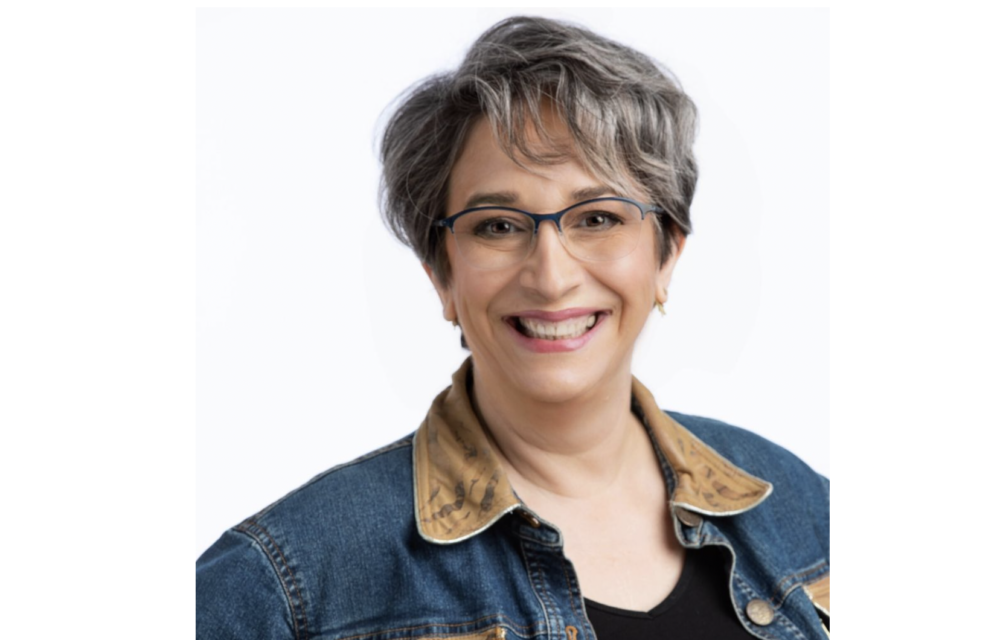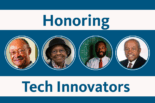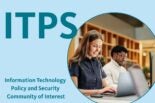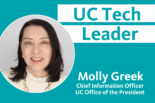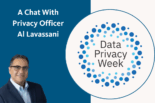By Jeané Blunt. Gigi Johnson, Ed.D., teaches music industry courses at the UCLA Herb Albert School of Music and was the founding executive director of the UCLA Center for Music Innovation. She also hosts the UCLA podcast, Innovating Music.
Describe your role at UCLA.
I am 21 years into my lovely UCLA adventure and I’ve done many different things. I’ve run four centers, taught for years, and presently I’m at the UCLA Herb Alpert School of Music. I had been running the Center for Music Innovation, which we grew about five years ago out of UCLA Arts & Architecture, to take a look at how technology is changing music.
That Center’s work has morphed into my Innovating Music focus that’s looking at music, technology, and social change. That focus leads into action learning classes, interesting research with the music community, and a virtual conference called Amplify Music that we did with about 30 organizations on April 23rd and 24th. I am continuing the Innovating Music podcast and teaching about 120 students this term remotely from my beautiful home studio.
With UCLA transitioning to remote learning, what are your classes like?
I normally teach smaller classes and I have two classes this term. I have one that is my Advanced Marketing for Musicians course that is hands-on – building websites, building marketing plans, and recommending a marketing launch for a real band, brand, or organization. It’s been an amazing class for 11 years and great things have come out of it.
I have another class that we have reframed as “Music Business Now” during COVID-19. We’re bringing in virtual guests from all over the place. This has been a time to reach out to people and bring them to class in ways that we’ve never been able to do before. I have people joining us on Wednesday nights – luckily not in their pajamas – to speak to 120 students, and they’re being recorded so our students in various time zones can enjoy the class and then do the related work.
It’s opened up opportunities. It’s reduced my three-hour roundtrip commute to school, and I’m able to bring in guests that otherwise would have been traveling or speaking elsewhere. Our students are using digital tools and research tools from home to be able to explore the areas that they’re passionate about in music. In this era of COVID-19, we’re using discussion boards, and students are doing videos from home on whatever they happen to have. It is a true hack.
I’ve been teaching online with other institutions outside of UCLA now for about twelve years. So for me, it’s less of a hack and it’s more, “How do I make this work with our structural norms, and how our students think? How they can get both comfortable and uncomfortable at this time?”
How are you using tech to live, as you say, a “robust digital life?”
When the universities began to rapidly move online, I had to think about the fact that we were going to be working in dispersed places, from our homes, with students everywhere. I had to think about, “How can I help bridge people?”
We already were in a lot of Slack groups across UCLA’s campus. My department happily picked up Slack. And on the upside, I probably can get ahold of somebody in my department faster now than I ever could before on an asynchronous basis using Slack, including sharing jokes and pictures of dinner.
Part of it is that there are so many tools out there. What works in the kind of communications ecosystem that we’re in? When you have people who are still trying to figure out how to get their camera to work on Zoom, how do you work on a real-time basis and help students change class sizes or be put on waiting lists?
We have a phenomenal department that’s been able to figure out how to use collaborative tools a lot better to enhance what we were doing before. We’ve got a shared space where we can learn around real life and recorded music. So how do we do two-sided recordings and help our students in our performing groups work together? And then, how do our students who are audio engineers do that better? So on the school side, that’s my framing and lens. But on the personal side, I’m trying to figure out what’s the right tool for the right group.
What advice do you give students who are new to remote learning?
I have had many conversations with my students on this topic in the past several weeks. Most of them use a calendar, of one type or another, but they mostly come to class to work on projects. We’ve had a lot of conversations about how to stay focused. In some ways it’s how not to do everything – it’s how to use your time. I don’t think that’s a superpower for a lot of our students.
I’ll ask, “What tools do you use? Do you use reminder programs? How do you even use your calendar?” And I’ll show them my calendar, which I color code so I can kind of see what’s coming up, and they’ll glaze over and say, “You color-code your calendar?!” Yes! That way I can see what’s UCLA-related and if I’m putting family time in.
I’ve worked with a lot of students now on just plain old organizational systems. Where to put stuff. How to remind themselves of stuff. I talk a lot now about an “attention diet.” Decide what your inputs are right now and take things out that are mentally fattening, or that provoke anxiety.
How are you making tech work better for you during this time?
I’m a statistics nerd. So according to Nielsen, we’re spending something like 14% less time on our smartphones than we were before. For me, this is a reminder of catching up with things. When I’m sitting in my backyard, in my lovely home that we’ve been in for 26 years, I’ll just sit quietly and step away from the computer. I’ve created habits around what apps I let notify me, and I let everything else go away.
I’m probably spending more time with family. I’m probably eating better because we’re taking the time to be together and eat together. We were all so busy and traveling and running around. Also, I’m intentionally not using devices into the evening. I’m sitting quietly and maybe watching a heartwarming video or something funny and trying to not let the digital intrude late into my evenings but to work on self-care and sleep.
There are so many tools out there that can make your life easier. You could rethink your core processes that may not have been effective and try new stuff – whether it’s playing with new streaming tech, new tools, or apps.
Part of my doctoral program was at Fielding Graduate University. I was at an event there recently and they had a sign that read, “What can I do today as a leader in my business institution that no one else can do to make an impact?”
I would challenge everyone to take some time and think about that. What is it that you can do, that you are uniquely placed to do, from your home experience? What can you add that is human or digital or connected? Are you a bridge between communities? Can you teach someone that doesn’t understand how to be taking their work home? Can you use the tech in your home to order groceries for your older neighbors who are struggling to go to the grocery store? Can you be providing comfort via whatever technology for family members in other locations? What can you do that is unique to who you are and what you can give?
 Jeané Blunt is IT communications and UC FCC licensing coordinator, Information Technology Services, UC Office of the President.
Jeané Blunt is IT communications and UC FCC licensing coordinator, Information Technology Services, UC Office of the President.

